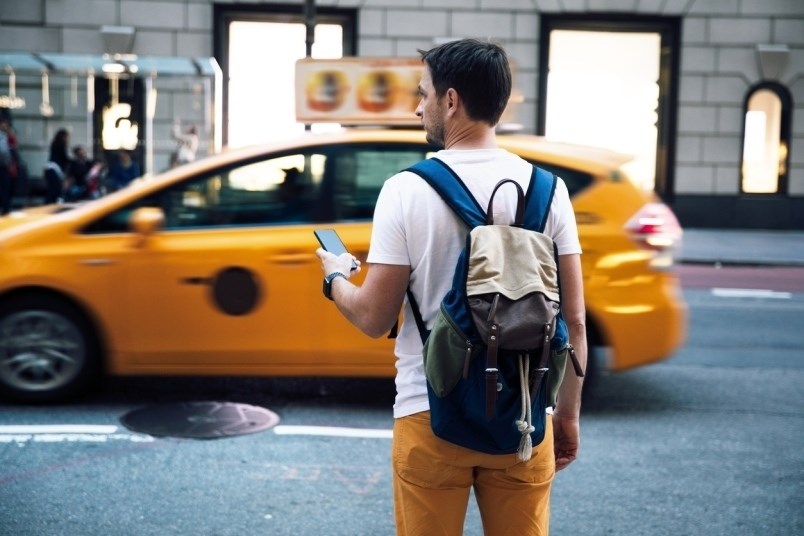In a one-day crackdown in late August, Richmond RCMP, PTB and the City of Richmond’s bylaws department handed out $7,500 in fines to illegal ride-hailing drivers.
Fines included operating without a permit or license, operating a business without a license, having the wrong driver’s license, failure to drive with due care and failure to stop for a police officer, according to Richmond RCMP.
In a presentation Tuesday to Richmond city council’s public works committee, Martin van den Hemel, director of communications for the Richmond-based ride-hailing KABU, raised concerns about international students using illegal ride-hailing services.
He has raised the same concerns with the Richmond School District, which currently has more than 600 international students studying in its schools.
Based on his experience working for KABU, which is licensed through the Passenger Transportation Branch (PTB), he estimates about 700 to 1,000 ride-hailing rides are being taken by international students in Richmond every day - these could be high school, elementary school or college students.
van den Hemel is concerned about young, impressionable international students getting rides in illegal ride-hailing services. This can open them up to being hurt in a traffic accident or some other “nightmare situation,” van den Hemel told the Richmond News.
“KABU is bringing this to the attention of the City of Richmond and Richmond School District because we believe that it’s part of their responsibility to educate these international students as well as their parents that they’re really putting themselves in harm’s way,” he added.
After the presentation, council members decided to bring the matter to their public safety committee, which includes staff from bylaws as well as an RCMP officer. They are also going to bring it up with the joint council/school board committee.
According to school district spokesperson David Sadler, they haven’t been notified by the RCMP or the Ministry of Education “of any safety concerns related to ride-sharing service providers in Richmond.”
Raccoon Go is one service that advertises they offer ride-hailing in the Lower Mainland, but they don’t have a license from the Passenger Transportation Branch (PTB).
They are also recruiting drivers on their website and claim to be “Vancouver’s largest, cheapest and most convenient Chinese ‘Uber.’”
They say on their website they operate in Vancouver, Victoria and Los Angeles.
As the Ministry of Transportation points out, illegally operating ride-hailing companies can face penalties of up to $100,000.
Furthermore, the ministry said in an email to the News, drivers are “assuming all of the risk related to providing the ride hailing service” and can also be fined up to $5,000.
The Ministry of Transportation and infrastructure said it’s increased its enforcement to address illegal ride-hailing in Metro Vancouver. There are nine Commercial Vehicle Safety & Enforcement (CVSE) officers and police that work to target these illegal operations.
PTB officers work regularly “to disrupt illegal operations by fining drivers with violation tickets,” the ministry said in an email to the News.
They are also working on legal ways to prevent these companies from advertising.
KABU was recruiting drivers and operating before ride-hailing was regulated in B.C. Once the industry became regulated by the PTB, KABU shut down its app until it received its license in February 2020.
van den Hemel said at that point illegal ride-hailing services – that haven’t received licenses and he claims aren’t planning to – filled the void.
He also claims they were recruiting new business, for example, at Vancouver International Airport (YVR).
When international students were returning to Canada this past summer, KABU drivers said they saw these illegal companies soliciting business at the airport, sometimes disguised in food-delivery uniforms, van den Hemel explained.
Ride-hailing businesses have to submit documentation to the PTB in order to keep their license. This includes a vulnerable sector criminal record check, a driver’s abstract, and they have to have their vehicles inspected every 40,000 kilometres. They also have to have insurance.
To see a list of government-approved ride-hailing companies, click here.



